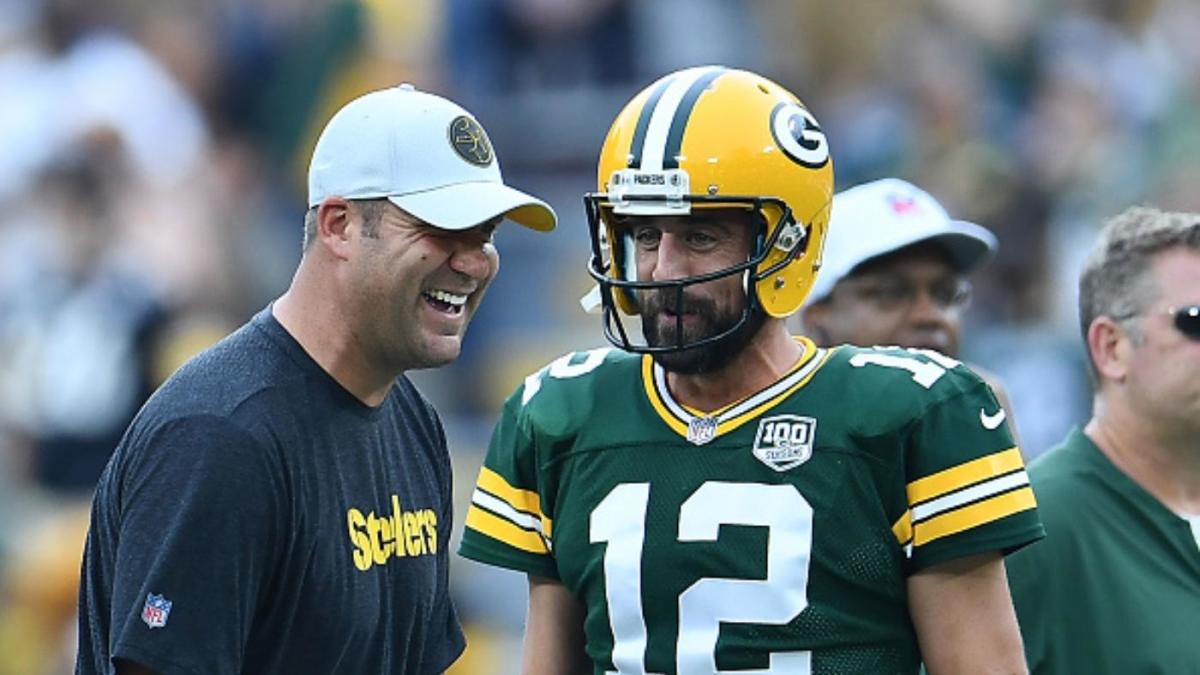Navigating the Steelers’ Quarterback Future: Insights from Ben Roethlisberger on Aaron Rodgers and the 2025 Season
The intersection of legacy, longevity, and transition encapsulates the Pittsburgh Steelers’ quarterback narrative heading into the 2025 NFL season. With the high-profile acquisition of Aaron Rodgers, a seasoned veteran at 41, the franchise stands at a crossroads. Ben Roethlisberger, an iconic figure in Steelers history, offers a perspective steeped in experience and tempered realism, painting a nuanced picture of what lies ahead for both Rodgers and the team.
A Season Marked by Change and Realism
Roethlisberger’s prediction that the 2025 season “might be it” for Rodgers is neither a hopeful rallying cry nor a dismissal; rather, it is a candid acknowledgment of the realities faced by aging quarterbacks in a demanding sport. His reflections draw heavily on personal experience, particularly his recovery journey from a major elbow injury in 2019, underscoring the physical challenges that mount with every passing season. Rodgers’ age situates him among the oldest players in a league increasingly defined by speed and agility, which informs Roethlisberger’s tempered outlook.
Key takeaways from Roethlisberger’s insights include:
– Age and Physical Demand: At 41, Rodgers is competing in an arena where the average quarterback lifespan is notably shorter, especially on the field week after week.
– Short-Term Outlook: The suggestion that 2025 may be Rodgers’ final year points to a strategic role for him as a seasoned presence rather than a long-term solution.
– Injury and Durability Concerns: Drawing parallels to his own career, Roethlisberger warns of the potential for injury and performance decline, particularly given Rodgers’ style and mobility limitations.
Rodgers’ Career Trajectory and Performance Context
Analyzing Aaron Rodgers’ recent performance fills out this picture. His 2024 statistics—nearly 3,900 yards, 28 touchdowns, and 11 interceptions—reveal a player still capable of high-level production despite his age. However, his declining mobility has drawn scrutiny, raising legitimate concerns about vulnerability to defensive pressure and the ability to sustain health throughout a punishing season.
The Steelers, having navigated post-Roethlisberger uncertainty, evidently see Rodgers as an opportunity to stabilize their offense. Yet the realism Roethlisberger injects tempers euphoria, framing Rodgers’ role more as a transitional figure than a franchise cornerstone.
Strategic Implications for the Steelers
Roethlisberger’s assessment goes beyond the individual to spotlight systemic challenges and opportunities for Pittsburgh in 2025 and beyond.
Transitioning with Purpose
The Steelers appear to be leveraging Rodgers’ experience as a bridge while exploring talent development for the future. This dual approach signals an understanding that rebuilding a team’s identity, especially at quarterback, is a complex, multi-year effort.
Offensive Cohesion Amid Uncertainty
With the quarterback position fluid, consistency on offense may prove elusive. Roethlisberger’s forecast suggests that fans and management alike prepare for fluctuations in performance and the need to adapt offensive schemes dynamically.
Embracing New Quarterback Archetypes
The mention of trusting quarterbacks “that can move” highlights a broader NFL trend favoring mobility alongside traditional pocket passing. Rodgers’ strengths contrast this shift, prompting the Steelers to balance respect for veteran prowess with the evolving demands of the game.
Leadership Beyond the Field
Despite potential limitations, Rodgers’ role extends into leadership and mentorship, critical for a team undergoing transition. His presence could guide younger players and instill professionalism during a period of uncertainty.
Looking Ahead: The Steelers’ Pivotal 2025
The prospect that 2025 might mark the curtain call for Aaron Rodgers encapsulates both an end and a beginning. It underscores the reality that football careers, no matter how illustrious, are finite while highlighting the importance of strategic foresight in team building.
For the Steelers, this season could serve as a defining moment: closing the chapter on a legendary quarterback’s career while setting the stage for the next era. Success will likely hinge on the team’s ability to integrate experience with adaptability, cultivate emerging talent, and embrace the shifting paradigms of quarterback play.
Ultimately, the Steelers’ journey through 2025 will reflect broader themes of resilience and transformation that resonate far beyond the gridiron—a narrative of legacy meeting evolution, guided by the voices of those who have navigated the path before.











